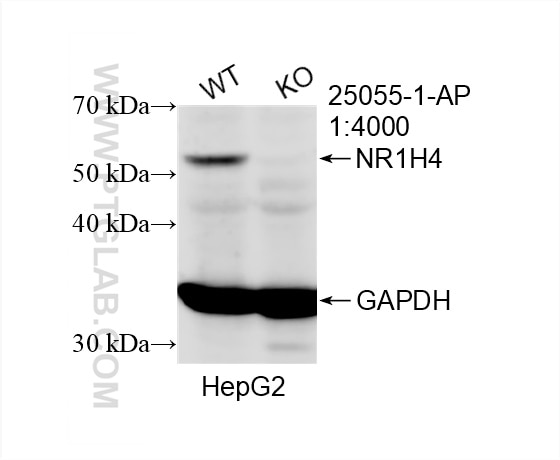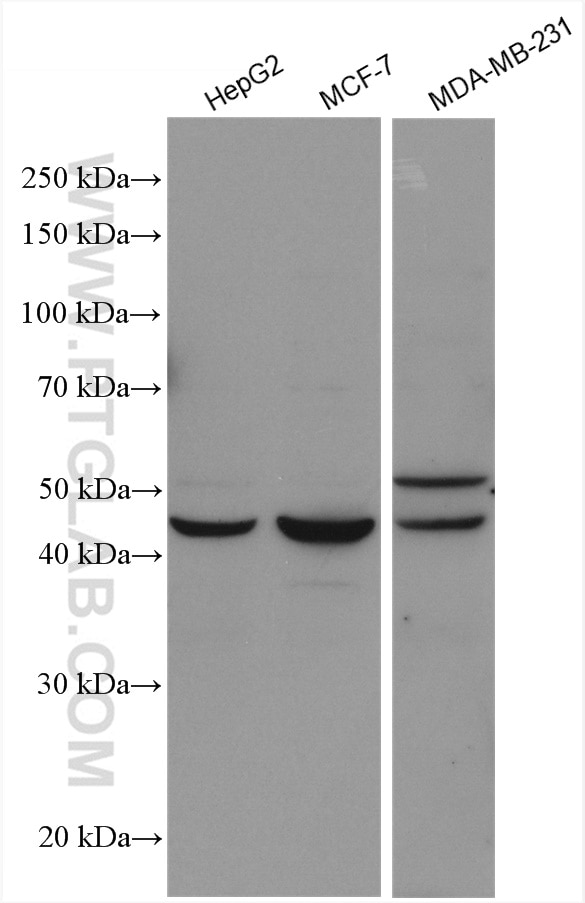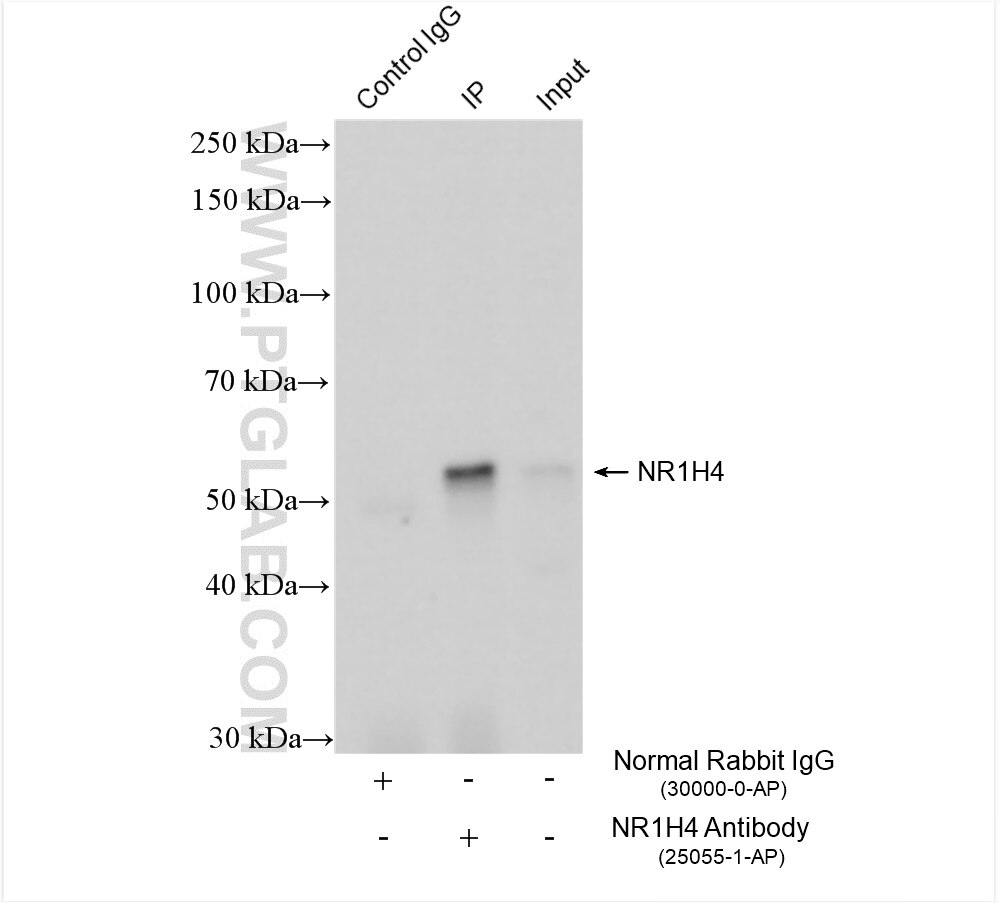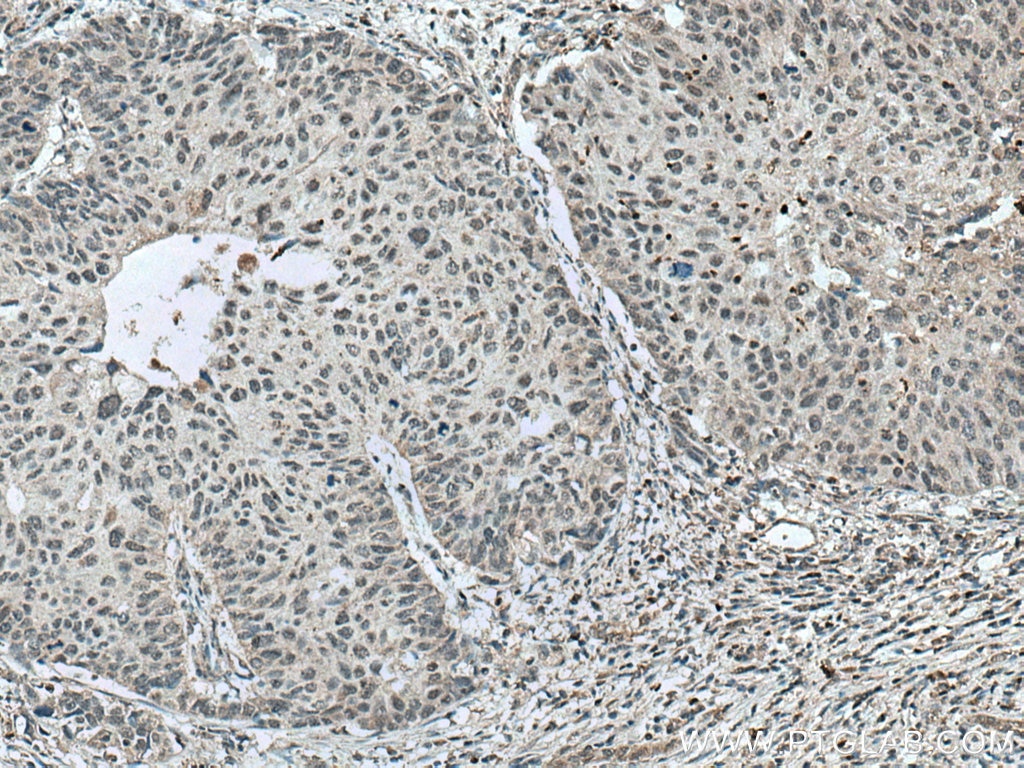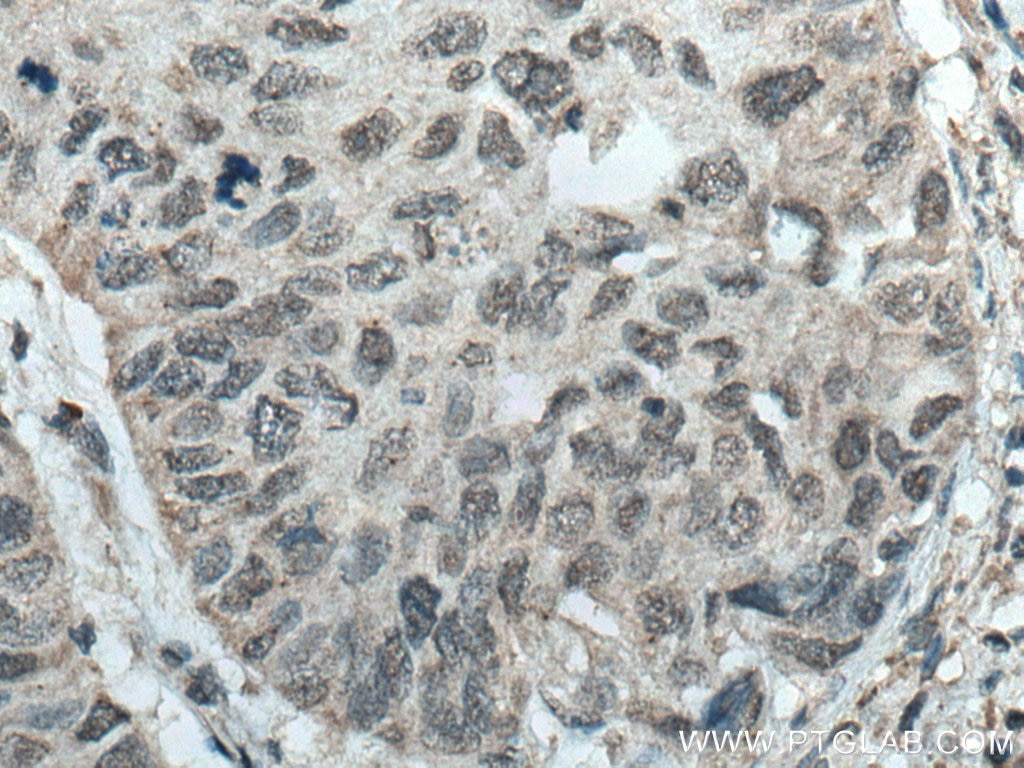- Phare
- Validé par KD/KO
Anticorps Polyclonal de lapin anti-NR1H4
NR1H4 Polyclonal Antibody for WB, IHC, IP, ELISA
Hôte / Isotype
Lapin / IgG
Réactivité testée
Humain et plus (3)
Applications
WB, IHC, IF, IP, CoIP, ELISA
Conjugaison
Non conjugué
N° de cat : 25055-1-AP
Synonymes
Galerie de données de validation
Applications testées
| Résultats positifs en WB | cellules HepG2, cellules MCF-7, cellules MDA-MB-231 |
| Résultats positifs en IP | tissu hépatique de rat, |
| Résultats positifs en IHC | tissu rénal humain, il est suggéré de démasquer l'antigène avec un tampon de TE buffer pH 9.0; (*) À défaut, 'le démasquage de l'antigène peut être 'effectué avec un tampon citrate pH 6,0. |
Dilution recommandée
| Application | Dilution |
|---|---|
| Western Blot (WB) | WB : 1:1000-1:6000 |
| Immunoprécipitation (IP) | IP : 0.5-4.0 ug for 1.0-3.0 mg of total protein lysate |
| Immunohistochimie (IHC) | IHC : 1:50-1:500 |
| It is recommended that this reagent should be titrated in each testing system to obtain optimal results. | |
| Sample-dependent, check data in validation data gallery | |
Applications publiées
| KD/KO | See 7 publications below |
| WB | See 71 publications below |
| IHC | See 16 publications below |
| IF | See 19 publications below |
| IP | See 2 publications below |
| CoIP | See 2 publications below |
Informations sur le produit
25055-1-AP cible NR1H4 dans les applications de WB, IHC, IF, IP, CoIP, ELISA et montre une réactivité avec des échantillons Humain
| Réactivité | Humain |
| Réactivité citée | rat, Humain, porc, souris |
| Hôte / Isotype | Lapin / IgG |
| Clonalité | Polyclonal |
| Type | Anticorps |
| Immunogène | NR1H4 Protéine recombinante Ag21878 |
| Nom complet | nuclear receptor subfamily 1, group H, member 4 |
| Masse moléculaire calculée | 486 aa, 56 kDa |
| Poids moléculaire observé | 48-56 kDa |
| Numéro d’acquisition GenBank | BC130573 |
| Symbole du gène | NR1H4 |
| Identification du gène (NCBI) | 9971 |
| Conjugaison | Non conjugué |
| Forme | Liquide |
| Méthode de purification | Purification par affinité contre l'antigène |
| Tampon de stockage | PBS with 0.02% sodium azide and 50% glycerol |
| Conditions de stockage | Stocker à -20°C. Stable pendant un an après l'expédition. L'aliquotage n'est pas nécessaire pour le stockage à -20oC Les 20ul contiennent 0,1% de BSA. |
Informations générales
Nuclear Receptor subfamily 1, group H, member 4 (NR1H4, also known as FXR) is a receptor for bile acids and has an important role in regulating energy metabolism in liver, muscle and adipose tissues in humans and animals. NR1H4 is highly expressed in liver and has a role in lipid metabolism, whereas none of the other protein-coding genes in the region has known biological links with cholesterol, further supporting a role for NR1H4 in regulation of cholesterol levels. NR1H4 have five isoforms, each isoform has a different expressional level and transcriptional activity depending on its location within specific tissues. (PMID: 14733360, PMID: 30787420)
Protocole
| Product Specific Protocols | |
|---|---|
| WB protocol for NR1H4 antibody 25055-1-AP | Download protocol |
| IHC protocol for NR1H4 antibody 25055-1-AP | Download protocol |
| IP protocol for NR1H4 antibody 25055-1-AP | Download protocol |
| Standard Protocols | |
|---|---|
| Click here to view our Standard Protocols |
Publications
| Species | Application | Title |
|---|---|---|
Cell Host Microbe Dietary fiber alleviates alcoholic liver injury via Bacteroides acidifaciens and subsequent ammonia detoxification
| ||
Cell Host Microbe A gut microbiota-bile acid axis promotes intestinal homeostasis upon aspirin-mediated damage | ||
Sci Total Environ Bisphenol A induced hepatic steatosis by disturbing bile acid metabolism and FXR/TGR5 signaling pathways via remodeling the gut microbiota in CD-1 mice | ||
Phytomedicine Wen-Shen-Jian-Pi-Hua-Tan decoction protects against early obesity-related glomerulopathy by improving renal bile acid composition and suppressing lipogenesis, inflammation, and fibrosis | ||
Phytomedicine Jiang-Tang-San-Huang pill alleviates type 2 diabetes mellitus through modulating the gut microbiota and bile acids metabolism | ||
Biomater Sci Mesenchymal stem cell-derived exosome mitigates colitis via the modulation of the gut metagenomics-metabolomics-farnesoid X receptor axis |
Avis
The reviews below have been submitted by verified Proteintech customers who received an incentive for providing their feedback.
FH Bryce (Verified Customer) (04-16-2021) | Antibody did not work for mouse kidney homogenates. There was no observable difference between kidneys from wild type and knockout mice. Genotypes of blotted samples were confirmed by RT-qPCR.
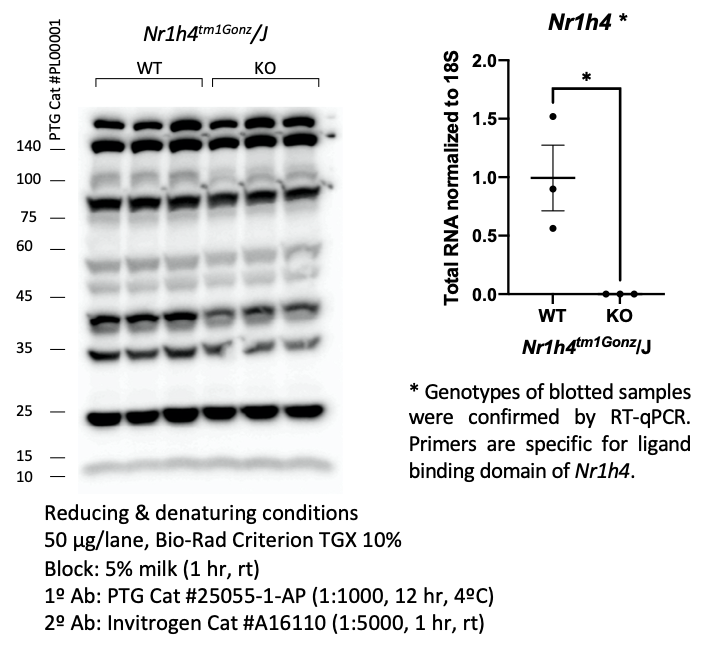 |
